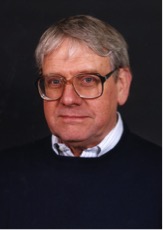Winner: Major Advancement in Psychological Science Prize 2016
Professor Alan Baddeley

Alan Baddeley is the world’s leading authority on the cognitive psychology of human memory. In the concept of working memory, he established one of the conceptual cornerstones of cognitive and neuroscience for the last century. His working memory model fundamentally transformed the way in which researchers conceptualized and investigated human memory. Until the 1960s, psychologists conceptualized short term memory as a kind of “place” where information is stored for a short period of time. In contrast to the static model, Professor Baddeley introduced a much more dynamic model of human memory. Specifically, he introduced the new term “working memory” and emphasized that short-term memory (storage) requires many active operations and processes. These include phonological loop (inner speech), visuospatial scratchpad (visual objects and their spatial relations), and central executive (attentional, coordinator) components. This was a major advancement as it replaced the previously simplistic, static, and inaccurate concept of “short-term memory.” His ingenious ideas about working memory have set the agenda for numerous highly productive projects and studies in cognitive psychology, cognitive neuroscience, cognitive aging, education, developmental psychology, clinical psychology and more over the last 40 years. In addition to Professor Baddeley’s major contributions to basic science, he has made major contributions to many important applied areas. For instance, he has showed the critical role of working memory in dementia, and devised interventions to ameliorate cognitive decline. Similarly, he has actively explored the role of working memory in children’s language acquisition and school achievement. It is simply not possible to imagine many fields within psychology without Professor Baddeley’s model of working memory. In short, Professor Baddeley’s work has had an enormous impact on and transformed research in various sub-disciplines in psychology ranging from cognitive psychology, cognitive neuroscience, to developmental, educational, and clinical psychology.
